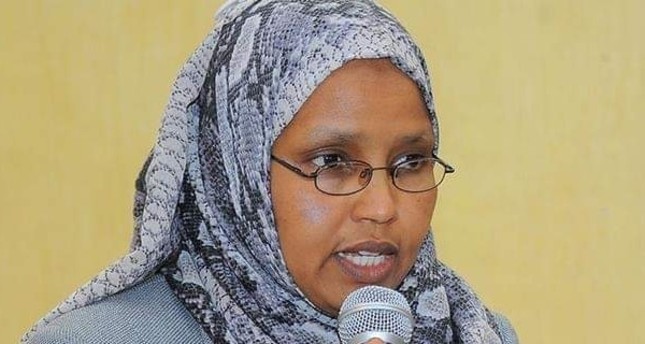Queens of Sheba: Dr. Abiy’s feminised cabinet

This is incredible news of unprecedented magnitude: Dr. Abiy Ahmed, the reformist Prime Minister of Ethiopia has done the unimaginable and appointed 50 percent of his new cabinet as women, including the Ministry of Defence. If this is not revolutionary, I do not know what it is.
Dr. Abiy has proved sceptics on his reformist agenda wrong in many ways: ending decades of hostility with Eritrea, reconciling the two patriarchs of the Ethiopian Orthodox Church (one was in exile in the United States of America), partial privatisation of parastatals—we cannot wait for liberalising telecoms and banking including foreign exchange, reforming migration laws to allow visa on arrival policy for all African countries (this was long-overdue given that Addis Ababa is the headquarters of the African Union and “Capital of Africa”), and the list goes on.
But to give 50 percent of his cabinet posts to the Queens of Sheba—allusion to the legendary Biblical Queen of Sheba who visited King Solomon to test his wisdom—this is unprecedented in the whole world. Now Ethiopia has taken the lead in gender parity and has effectively feminised the executive arm of government, and the rest of the world will have to follow, as Dr. Abiy leads.
This brief comment is a sequel to the piece I did sometime back: “Dr. Abiy Ahmed’s Ethiopia: Anatomy of an Enigmatic African Polity” that was published by Pambazuka News. The enigmatic African polity that is Ethiopia under Dr. Abiy, has now overtaken the whole world in walking the talk to empower women, not by tokenism but actually giving them strategic ministerial posts that will be a game changer. In defending his choice, Dr. Abiy argued that: “our women ministers will disprove the old adage that women can’t lead.” This claim that women can’t lead is not just an adage, it is also a dangerous myth that has been sustained for centuries to keep women away from positions of influence, citing flimsy arguments based on pseudo science and biologism. Now all this has been laid to rest.
This bold move should be placed in the context of the broader reforms that Dr. Abiy has embarked on. He even created a Ministry of Peace that will incorporate previous ministries and departments of security, federal and pastoralist affairs. The formerly eight agencies and commissions such as the National Intelligence and Security Agency, the Information Network Security Agency, the Federal Police Commission and the National Disaster Management Commission will henceforth be under one ministry. This is radical public sector reform that will reduce the blotted public sector.
Aisha Mohammed is the first woman in Ethiopia to head the powerful ministry of defence. And this is not some cheap affirmative action ploy. Aisha is an engineer by profession. Dr. Abiy is clearly shaking the edifices of patriarchy—appointing a Muslim woman to head defence in a heavily patriarchal society is more than revolutionary. The former house speaker, Muferiat Kamil, another Muslim woman, takes over the newly formed position of Minister of Peace, that combines several dockets such as: Transport, Revenue, Trade and Industry. Again following the reformist philosophy, Science is also headed by a woman.
But the main issue that has informed Dr. Abiy’s paradigm shift in ministerial appointments is the fight against corruption. He believes that women will be less corrupt than their male counterparts. This assumption will of course be tested as time goes by. But it is important to give Dr. Abiy a chance to prove himself in his marathon and momentous wide-ranging reforms.
Dr. Abiy is also paying the special tribute to women who matter in his life. As soon as he was sworn in as Prime Minister, he paid glowing tribute to his mother and his wife—two women whom he said have enormous influence in his political career. He has now rewarded them by giving key ministerial posts to women thus making a loud and clear statement that women should never be confined to the traditional roles custom and culture have assigned them for centuries.
The list of the new cabinet is as follows:
Women Ministers
Muferiat Kamil—Minister of Peace
Aisha Mohammed – Minister of Defence
Adanech Abebe – Minister of Revenue
Fetlework Gebregziabher – Minister of Trade and Industry
Dagmawit Mogess – Minister of Transport
Hirut Woldemariam (PhD) – Minister of Science and Higher education
Yalem Tsegaye Assfaw –Minister of Women, Children and Youth
Ergoge Tesfaye (PhD) –Minister of Labour and Social Affairs
Hirut Kassaw (PhD) –Minister of Culture and Tourism
Fitsum Assefa (PhD) – Minister of Planning and Development Commission
Men Ministers
Workneh Gebeyehu (PhD) – Minister of Foreign Affairs
Ahmed Shide –Minister of Finance and Economy
Umer Hussien – Minister of Agriculture
Amir Aman (PhD) – Minister of Health
Dr Getahun Mekuria –Minister of Innovation and Technology
Engineer Seleshi Bekele (eng.) Minister of Water, Irrigation and Electricity
Jantirar Abay –Minister of Urban Development and Construction
Samuel Hurko (PhD) – Minister of Mines and Petroleum
Berhanu Tsegaye – Attorney General with the Rank of a Minister
Tilaye Gete (PhD) – Minister of Education
Hopefully this radical move by Dr. Abiy will send a message across the world and unleash a global resurgence of women empowerment in political offices. The United Nations’ 30 percent women positions rule is yet to be realised in most countries.
As Psalm 68 prophesies, Ethiopia shall lift up its hands in prayer to God. Now the Queens of Sheba shall lift up their hands in political and economic transformation of not only Ethiopia, but also the rest of Africa and indeed the entire world.
* Doctor Odomaro Mubangizi teaches social and political philosophy at the Institute of Philosophy and Theology in Addis Ababa, where he is also Dean of Philosophy Department. He edits the Justice, Peace and Environment Bulletin.
